How Not to Be Governed
How Not to Be Governed
Readings and Interpretations from a
Critical Anarchist Left
Edited by Jimmy Casas Klausen
and James Martel

Published by Lexington Books
A division of Rowman & Littlefield Publishers, Inc.
A wholly owned subsidiary of The Rowman & Littlefield Publishing Group, Inc.
4501 Forbes Boulevard, Suite 200, Lanham, Maryland 20706
http://www.lexingtonbooks.com
Estover Road, Plymouth PL6 7PY, United Kingdom
Copyright 2011 by Lexington Books
All rights reserved. No part of this book may be reproduced in any form or by any electronic or mechanical means, including information storage and retrieval systems, without written permission from the publisher, except by a reviewer who may quote passages in a review.
British Library Cataloguing in Publication Information Available
Library of Congress Cataloging-in-Publication Data
How not to be governed : readings and interpretations from a critical anarchist left / edited by Jimmy Casas Klausen and James Martel.
p. cm.
Includes bibliographical references and index.
ISBN 978-0-7391-5034-4 (cloth : alk. paper)ISBN 978-0-7391-5035-1 (pbk. : alk. paper)ISBN 978-0-7391-5036-8 (electronic)
1. Anarchism. I. Klausen, Jimmy Casas, 1976- II. Martel, James R.
HX833.H69 2011
320.5'7dc22
2010043813
 The paper used in this publication meets the minimum requirements of American National Standard for Information SciencesPermanence of Paper for Printed Library Materials, ANSI/NISO Z39.48-1992.
The paper used in this publication meets the minimum requirements of American National Standard for Information SciencesPermanence of Paper for Printed Library Materials, ANSI/NISO Z39.48-1992.
Printed in the United States of America
Contents
James Martel and Jimmy Casas Klausen
Jacqueline Stevens
George Ciccariello-Maher
Katherine Gordy
Todd May
Vanessa Lemm
Banu Bargu
Jimmy Casas Klausen
James Martel
Keally McBride
Elena Loizidou
Acknowledgments
If the production of any book could qualify as a communal process, then the publication of this book in particular could be described as anarchocommunal. James Martel and Jimmy Casas Klausen wish to thank our contributors first of all for their patience with what must have seemed at times to be a chaotic endeavor. We are grateful to Phil Green for provoking us to think more searchingly about critical anarchism after offering us constructive but critical comments in Boston at the American Political Science Association panel that sparked this larger project in 2008. Joseph Parry at Lexington Books approached us and took time to meet with us in Boston about turning our panel into a book, and Erin Walpole has ushered us through the production process with Lynda Phung, our production editor and a University of WisconsinMadison alumna. We cannot thank Joseph, Erin, and Lynda enough for their interest in the project and fortitude in dealing with the quirks of its coeditors. Finally, this work would never have reached the publication stage if it werent for the epic efforts of our project assistants Robert Gordon, May Erouart, and Alexander Hanna. Robbie and May probably had no idea what they were getting into when they agreed to join as project assistants under the auspices of the University of WisconsinMadison Undergraduate Research Scholars Program; their work was fantastic and much appreciated. Alex is to be commended for stepping in at the last moment to help coeditors who had fled to remote locations. A final word to our skeptics: this book is humble proof that anarchy might not be unproductive.
Introduction: How Not to Be Governed
James Martel and Jimmy Casas Klausen
ANARCHISM: IN OUR TIME?
In thinking about the relevance or possibility of anarchism in our time, we come up against a set of obstacles. First and foremost is the obstacle of temporality itself; there is the sense that anarchism belongs to the past and that it is therefore at best an anachronism or, alternatively, there is the notion that it never really took hold at any time and is thus at worst an idea completely divorced from reality. Perhaps just as important is the idea that anarchism is a problematical goal to pursue during a time when the state is under attack, when sovereignty is being eroded by a series of forces whether human, nonhuman, or superhuman. The growing threats of global and domestic terrorism, the juggernaut of globalization, resurgences of religiosity, transnational pandemics, global warming, profit-driven genetic modification of food supplies, international piracy and all the other aspects of early twenty-firstcentury life were told to worry about suggest that it may be perverse to pursue a theory that opposes state power, regulation, and authority; after all, we seem to be living in a time when we desperately need the state to protect us from or at least coordinate responses to the various crises that we face. Finally, it seems that, in the United States at least, there are already a set of would-be anarchists doggedly pursuing the elimination of the state. These are members of the so-called Tea Party; their agenda, far from being an expression of the left (traditionally viewed as the home of anarchist tendencies), is to seek the withering away of the state from the far right end of the political spectrum. If we pursue an anarchist agenda, are we not in effect aligning ourselves with such a movement?
Similarly, the idea that we need the state to protect us from emergent contemporary threats reflects a conviction that without state regulation and sovereign power, human nature would condemn us to civil war and mayhem (a view often ascribed to Hobbes, among other early modern social contract theorists). Or, to put it in Foucaultian terms, even as there are current discourses that claim to identify and diagnose threats to contemporary societies and individuals, such a litany of threats shores up, rather than undermines, the idea of governmentality as security. Governmentality itself can support state sovereignty (with some friction, to be sure) rather than directly compete with it.
In this way, the usual judgment of anarchism, as impossible and undesirable, is generally contained within a liberal eschatology of time and order. Given the presumptions that liberalism has brought to the most basic understanding of human nature, politics, and temporality, we can see how easily a challenge like anarchism can be literally read out of the universe of political possibility. But to accept these presumptions may mean to reinforce liberalism itself; such views do not actually determine the possibility of anarchism. We should remind ourselves that insofar as anarchism is a radical alternative to liberalism, it has its own temporality, its own sense of possibility, and its own orders of desirability. Recuperating these alternative notions is a central part of what we are trying to do in this volume.
As for the third argument presented above, the idea that anarchism is already nascent in the Tea Party movement, it is worth spending some time distinguishing that movement from the varieties of anarchism we are discussing. It will be our argument that this movement has absolutely nothing in common with anarchism and that, in fact, the Tea Party is itself just another variant, albeit a radical one, of liberalism (taken in its classical rather than contemporary American sense). In looking at this and other movements, we focus on the American political spectrum because, situating itself at the center of the worlds global liberal network (at least for the time being), it is where we may see the logic of liberalism most clearly at work. We see the basic commonalities that unite all liberal capitalists (broadly defined) even as these groups and movements also have an enormous amount of enmity for and opposition to one another. Considering the Tea Party as a variant of liberalism is instructive because it may seem to offer a critique of more mainstream variants and yet may not ultimately reject those variants structuring assumptions. Perhaps particularly at the extreme radical end of the spectrum of liberal capitalism, we can see most clearly those aspects of liberalism that are common to all forms of its political expression.
Next page



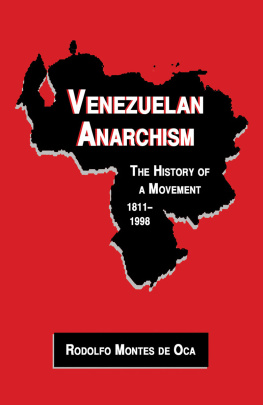

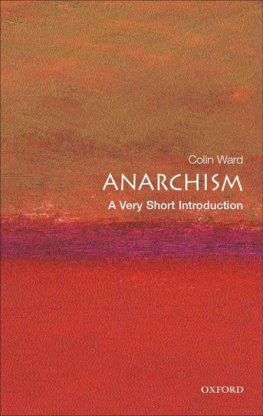
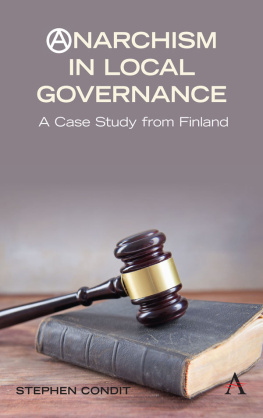

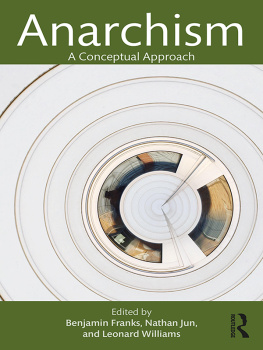


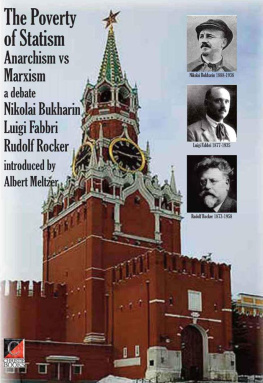

 The paper used in this publication meets the minimum requirements of American National Standard for Information SciencesPermanence of Paper for Printed Library Materials, ANSI/NISO Z39.48-1992.
The paper used in this publication meets the minimum requirements of American National Standard for Information SciencesPermanence of Paper for Printed Library Materials, ANSI/NISO Z39.48-1992.